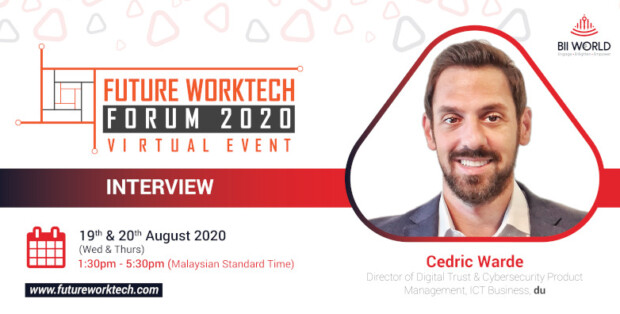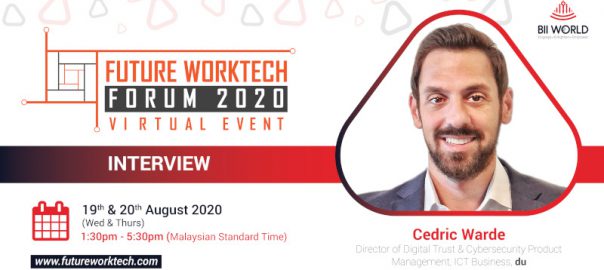With the prevailing global crisis, what is your personal opinion on how the future of work will affect your business operations?
In my opinion, organisations across industries will need to redefine the way they operate to increase productivity and achieve cost efficiencies. They will need to adapt their processes, culture and systems to enable business continuity and resiliency. Offices will transform into simple meeting places where face to face meeting will need to happen for strategic or critical projects. Employees expect to conduct their responsibilities outside their office, which mean they will require seamless access to corporate applications as well as collaboration tools using any device and from anywhere.
According to you, which emerging technologies will be most crucial and relevant to the dynamic changes at work?
Covid19 played a critical role in accelerating digital transformation, particularly in developing markets. Automation, cloud, and as-a-service models are quickly becoming the new norm and are changing the way employees work, collaborate and deliver value to their end customer. As organizations are rethinking their business models in house technology team’s contribution, will lie in the value they deliver to the business versus in the services they deliver.
How do you think change management and HR policies will cater to the needs of employee welfare and engagement to effectively adapt to the future work culture?
In my opinion, change starts at the top of every organisation. For an organization to adopt to the new way of work, companies should adapt their culture, processes and systems. A change management program will need to be put in place and supported by the board of directors that encompasses various work stream covering people, process and technology across the various functions of a organisations. People across the organisation will need to contribute to the change if we expect them to adapt their behaviors and way of working.
What are the main challenges in evolving into the future of work operations with respect to WFH, Remote Work and Virtual Employees formats?
The challenge in my opinion is how to deliver an engaging employee experience to maximise productivity effectively without jeopardizing the security posture of your organisation critical assets.
In addition to technology, companies will need to adapt their culture and processes where trust and accountability will take precedents over physical presence and, number of hours spent in the office.
How do you suggest organizations will deal with business confidentiality, cyber threats, safety and security concerns which are crucial factors for the changing work operating models?
Companies will need to redefine their cybersecurity strategy to enable digital adoption and to build trustworthiness with their end uses, employees and partners. In fact, digital business has inverted access requirements, with more users located outside of an enterprise than inside. The borderless enterprise must be protected at all modern entrance gates. This extends from the network edge and the corporate firewall outward to mobile applications and the cloud, and inward to every employee and every device.
Trust lies in every market relationship. People buys from people they trust. Cybersecurity breaches can have a detrimental impact on a company’s reputation. In fact, the conversation around security is shifting from being perceived as a IT risk to a business risk and to a competitive differentiator that will enable confident decision making and growth
To ensure business continuity, CIOs need to initiate a digital trust framework that goes beyond preventing attacks and that enables organizations to resiliently rebound from adverse situations, events, and effects. As a result, CIOs need to enhance their visibility and resiliency by focusing on delivering 4 key cybersecurity outcomes: Vulnerability, Identity, Trust and Threat Management”
How do you feel attendees will benefit from Future WorkTech Forum?
For a long time “The Future of Work” has been a concept. Today it is the reality. companies that do not adapt will eventually disappear. They will lose their competitive advantage and struggle in attracting and retaining talent. There is no right or wrong answer. The key is to listen, engage and share lessons learned that will benefit other peers. Future WorkTech offers the right platform for likeminded to share their experience and contribute to shaping the new way of work.


